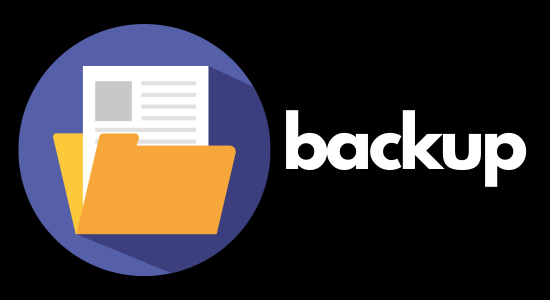Boring businesses online often go unnoticed because they lack excitement, but from what I’ve seen, some of the simplest, most overlooked ideas can build steady, long-term wealth. The key is that these ideas are stable, repeatable, and solve practical problems for specific people or industries.
If you get tired of chasing the next big trend and crave something reliable, looking at these quiet industries can be a smart move. Some of them require effort upfront but become almost completely hands-off as they grow. These businesses might seem dull on the surface, but their revenue potential and recurring customer base make them worth your attention.
Here, I’ve pulled together twelve online business ideas that most people wouldn’t call exciting. Yet, they offer a surprising path to financial security and, in some cases, can help you make a small fortune if you’re patient and consistent.

1. Template Shops for Legal Documents
Legal paperwork is something almost everyone dreads. I’ve watched small businesses, freelancers, and even individuals pay good money for ready-to-use contracts, service agreements, lease templates, and waivers. When I think about boring online businesses with real potential, creating a website where people can download customizable legal templates stands out.
If you have some background or contacts in law, this becomes even easier to launch. Even if you don’t, teaming up with a licensed attorney helps keep things accurate and trustworthy. People are willing to pay for the peace of mind that comes with legally sound documents without consulting an expensive lawyer for every need.
Features and Benefits:
- Low ongoing maintenance once the core templates are created.
- Can serve a broad market or target a specific industry (like event planners, property managers, or independent contractors).
- Recurring income by offering updates and access via membership or subscription.
Sites like LegalTemplates.net or Rocket Lawyer have shown how well this can work. Even niche contract templates, when marketed correctly, can bring reliable monthly sales.
2. License Renewal Reminder Services
Professional license renewals are easy to forget, and missing deadlines can cause headaches for nurses, realtors, electricians, and other licensed pros. I’ve seen demand for simple web services that send alerts, track renewal dates, and sometimes even prepare prefilled forms for users.
The service might seem unexciting, but it solves a recurring pain point. People are willing to pay for this year after year. Most of the work is setting up automated reminder emails or texts. Once the system is running, you manage renewals, process payments, and occasionally handle customer support.
What Makes This Work:
- High retention, since people typically need reminders each year.
- Minimal feature creep, with a focus on reminders, logging, and maybe a basic client portal.
- Lots of possible audiences, like medical, teaching, cosmetology, or technical trades.
If you want a project with predictable growth and minimal surprises, this one checks a lot of boxes.
3. Reputation Management for Small Businesses

Every local business wants good reviews online, but many don’t know how to get them or keep track. Running a service that monitors online reviews, helps address negative feedback, and encourages positive responses can seem a little dull. But the cash flow is anything but boring.
I’ve worked with small businesses who gladly pay a subscription fee just for regular reports and a few professional responses each month. With some basic automation tools, you can make this business nearly hands-off once the setup is done.
Why Clients Love This:
- Saves them time and stress.
- Keeps their reputation strong, which drives real-world sales.
- Offers consistent, recurring revenue as clients rarely cancel.
If you prefer working in the background instead of being the center of attention, this service is a strong choice.
4. Micro SaaS for Niche Professions
A Micro SaaS (small software as a service) is a software product that serves a tightly focused audience. For example, I’ve seen tools made just for dental offices to schedule appointments, or plumbers to track work orders. These sound tedious, but the beauty is in low competition and loyal customers.
You don’t need to build the next big universal app. By identifying a very specific task in a certain industry, such as a compliance tracker for HVAC technicians or a policy update notifier for real estate brokers, you can build something surprisingly profitable.
Key Advantages:
- Lower development costs since the features are limited and focused.
- Easy to market to industry specific groups and conferences.
- Users integrate these tools into their daily routines, reducing churn.
If you know someone in a niche industry, ask them what part of their work is the most annoying and repetitive. That’s often where the best micro SaaS ideas are hiding.
How I "Finally" Make Over $7,000 Monthly Income
"The most valuable thing I've ever done!"
5. Online Compliance Training for Regulated Industries
Industries like healthcare, finance, and construction have strict rules for training and certification. What’s surprising to me is how many people avoid getting into this space because it seems complicated or too boring to market.
But businesses are required by law to keep up with training, which means recurring clients and steady sales. With the right content and simple quizzes or assessments, you can sell training access through a learning management system or just downloadable materials.
Insights From This Model:
- Recurring revenue due to expiring certifications and updated rules.
- Easy to partner with subject matter experts for course content.
- No need for fancy production. Clear, reliable info is what matters most.
The big players in this space started small, often with just a PowerPoint and a basic test. Over time, I’ve watched some turn these into large membership-based businesses.
6. Data Entry and List Management Services

Data Entry and Admin
This business doesn’t excite many people, but organizations always need help cleaning spreadsheets, merging lists, and organizing contacts. I’ve worked with business owners who are happy to offload this repetitive work if it means fewer errors and better marketing performance.
You can run this as a solo freelancer or build a small remote team to take on more clients. The work rarely changes much, and most tasks can be handled on a part time schedule, making it ideal for those looking for stable side income.
Common Tasks You Can Offer:
- Cleaning up customer lists or CRM entries.
- Validating addresses or contact information.
- Dealing with bulk imports for software or email platforms.
If you’re patient, organized, and don’t mind repetitive work, this humble business model pays off over time. Some virtual assistants even bundle data entry with light research, which can lead to higher rates and more custom work.
7. Website Accessibility Auditing
Accessibility regulations mean every website needs to be usable by people with disabilities. While checking a site for text alternatives, color contrast, and keyboard navigation can seem unexciting, it’s a growing area of online business that brings peace of mind to site owners.
You can offer automated audits with clear reports, and for a premium service, include personalized fixes or guidance. Many clients will need repeat audits as laws and standards change, which adds ongoing value beyond the initial checkup.
Demand keeps increasing as lawsuits and complaints rise. This is one of the more dependable online fields I’ve come across.
8. Inventory Spreadsheet Templates for Retailers

Independent store owners and ecommerce sellers often manage inventory with plain spreadsheets, even if they use online shopping platforms. Selling well-designed, easy to use inventory templates solves lots of headaches for these business owners without needing special software.
When I set up my own shop, a simple template made a huge difference in managing stock, costs, and orders. Once made, templates sell over and over with virtually no extra work, especially if you add a video tutorial or step by step PDF instructions.
Getting Started Is Simple:
- Create flexible, customizable formats for different retail needs.
- Offer templates as digital downloads on your website or online marketplaces.
- Bundle templates for added value.
I’ve found that targeting retailers with specific needs, such as boutiques or specialty food stores, makes your templates even more in demand. You can also ask for feedback and update your offerings to address particular challenges.
9. Recurring Billing Management for Service Providers
Many small businesses and freelancers don’t have the time to chase down monthly payments or set up recurring billing. Offering a whitelabel service to manage this, sending invoices, following up, and automating payment reminders, provides relief from a task nobody enjoys.
With the right payment integrations, most steps happen automatically. Business owners often pay a monthly or per client fee, and you can scale up by onboarding more service providers over time.
This business relies on trust, reliability, and a helpful customer support channel. Once your process is proven, you’ll find it’s easy to keep clients long term because getting paid on time is so important to them.
10. Company Policy Template Libraries
Most companies, even small ones, are required to have policies covering everything from data privacy to sick leave. Building a library of downloadable, editable policy templates offers steady demand. Many owners want ready made options that just need a few tweaks for their business.
A good collection covers topics like social media use, workplace safety, and customer complaints. For extra value, you can offer updates as laws change and bundle the download with short guides or best practices checklists.
The toughest step is getting the base set of policies right. After that, customers will gladly pay for regular access or updated versions to stay compliant without starting from scratch each time.
11. Digital Archiving and Backup Services

Digital clutter causes problems for individuals and small organizations. Secure online archiving, organizing, storing, and backing up important documents or older project files, is an underrated service. Most people do not have time to set up solid file management or backups, so they outsource it.
You can run this using existing cloud tools, setting up folders, managing permissions, and performing regular check-ins. Clients stay on for continued monitoring and support, and you can even add value by setting up automated backup workflows for them.
The work may feel slow, but as I’ve seen, it comes with loyal clients who want peace of mind more than bells and whistles. Over time, these relationships can lead to referrals and more specialized digital organization services like file recovery or encrypted archiving.
12. SOP (Standard Operating Procedure) Writing Services
Standard Operating Procedures give businesses consistency and help train new hires faster. I started offering this on a freelance basis and was surprised at the ongoing demand for neatly formatted SOPs for everyday tasks, such as onboarding, customer service scripts, or compliance steps.
You don’t need deep industry experience to get started; working with subject matter experts inside each business can fill in the technical gaps. Once you’ve built a few strong examples or templates, you can offer them as a product and customize for new clients as needed.
How This Pays Off:
- Businesses often need new SOPs as they grow or change processes.
- Template versions sell as digital products with minimal ongoing labor.
- Add-on services for updates or formatting can give your income per client a boost.
How to Succeed With Boring Businesses
I’ve learned that steady, dependable online businesses are built on solving routine problems that never go away. If you choose to build a business around one of these ideas, it’s super important to deliver consistent value, set up simple systems, and offer a great customer experience.
Boring businesses might not sound glamorous, but they make up the backbone of the online service economy. With a bit of creativity and a clear understanding of your audience’s real needs, there’s plenty of opportunity to build wealth without flashy trends or risky gambles. Sometimes, the most "boring" idea is actually the one that stands the test of time, delivering a stable income over the years—as many successful but quiet entrepreneurs have proven.

